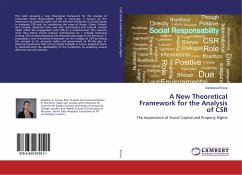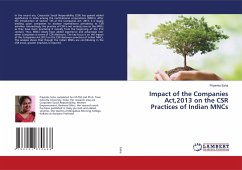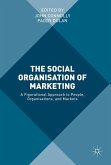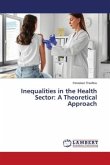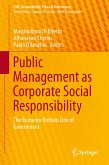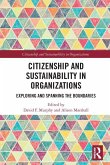This work presents a new theoretical framework for the analysis of Corporate Social Responsibility (CSR). In particular, it focuses on the importance of property rights and the informal institution of Social Capital in analysing CSR and, by considering the cases of Russia, China, Poland, and Canada, illustrates how and why institutional and cultural context might affect the engagement with CSR on a national level. This research work thus makes several original contributions by i. critically reviewing existing CSR conceptualizations and demonstrating gaps in the literature; ii. proposing a new theoretical framework for the analysis of CSR by linking the concept to SC, property rights, and government to fill the gap; iii. drawing hypotheses that can be tested formally in future empirical work; iv. demonstrating the applicability of the framework by analysing several different country contexts.
Bitte wählen Sie Ihr Anliegen aus.
Rechnungen
Retourenschein anfordern
Bestellstatus
Storno

